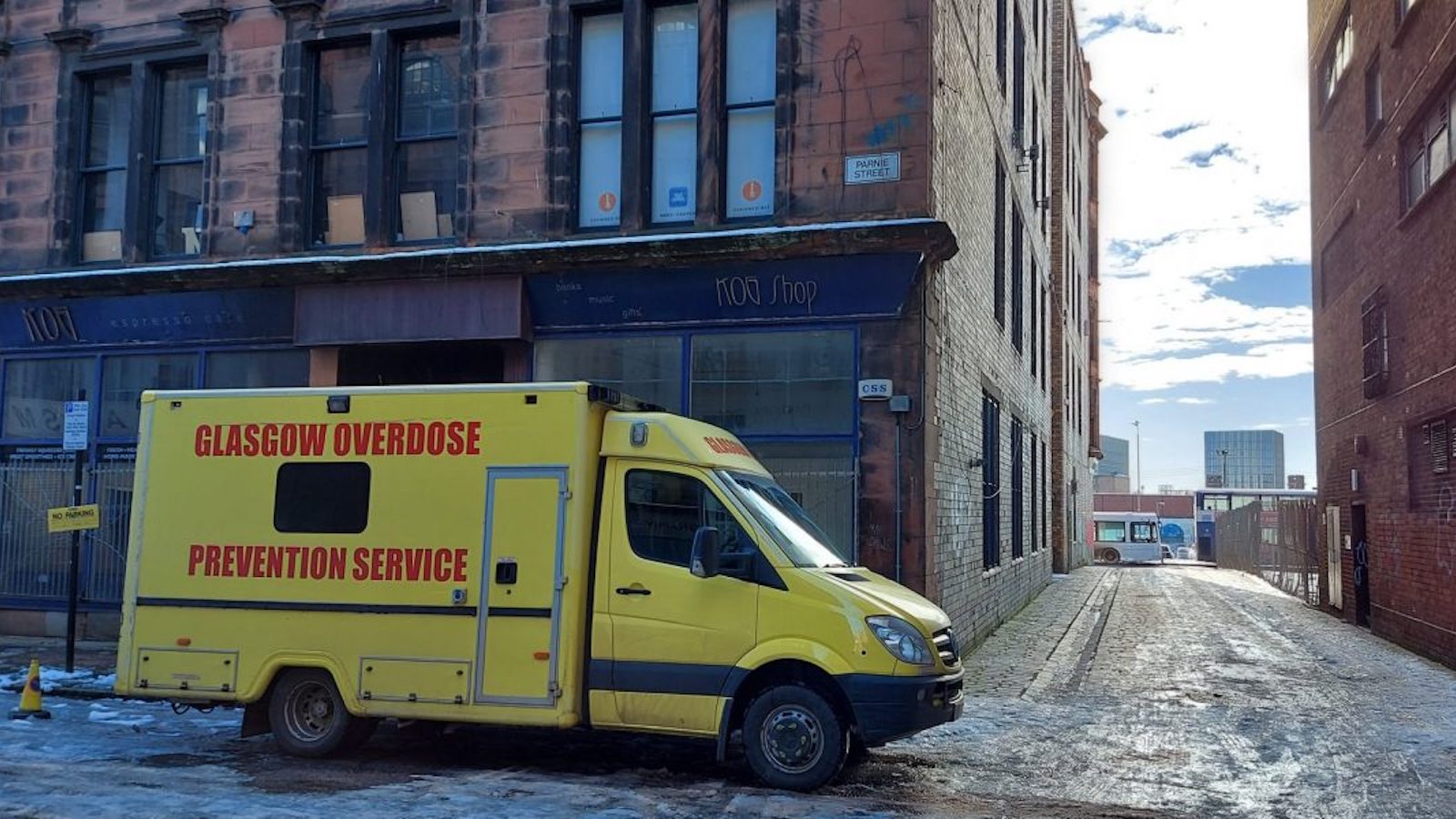
The US Should Follow Glasgow’s Lead and Remove Barriers to Overdose Prevention Centers
Last month Elena Whitham, minister for drugs and alcohol policy, told the Scottish Parliament, “The war on drugs is over. No-one won and the main casualties were not organized criminals but the poorest and most vulnerable.”
As overdoses continue to rise across the world, it’s clear that the conventional prohibitionist approach to drug policy has failed us all. As the leader of the war on drugs, the United States has been particularly hard hit. The US has had the highest overdose death rates among wealthy nations and saw an estimated 109,680 overdose deaths just last year. Rather than doubling down on drug war policies, we should turn to a more humane public health approach to the crisis.
Overdose prevention centers (OPCs) are safe, legal locations for individuals to take previously-obtained drugs in a clinical, controlled setting. They are staffed by individuals trained to intervene and prevent an overdose. Many centers also offer drug testing equipment. At a time when fentanyl and other contaminants are fueling rising overdoses, allowing individuals to check the quality of substances is a crucial step to overdose prevention.
Authorities in Glasgow officially committed to adopting this approach when they greenlit the UK’s first overdose prevention center late last month. The establishment of this crucial center will not only help prevent further deaths in Glasgow, it will serve as an example and test case to demonstrate the efficacy of such centers. Allan Casey, Glasgow city council’s addictions convener, shares this sentiment, saying, “Glasgow has a huge responsibility to demonstrate the concept works here in Scotland.”
Allowing drugs to be taken in a controlled environment is a radical departure from the prohibitionist approaches that have defined the last few decades of drug policy. Such policies only made the problems of drug addiction and overdose rates worse.
Fentanyl’s entrance into the drug supply itself is a result of prohibitionist policies. The Iron Law of Prohibition suggests that with more punitive enforcement comes stronger drugs. Researchers at the Yale Center for the Study of Globalization explain, “Criminalized suppression predictably causes the illicit drug supply to become more dangerous, because black-market producers and smugglers have an economic incentive to use highly potent additives.” Essentially, doubling down on supply-side interventions and criminal penalties does not prevent drug sales, but drives clients to the black market where sellers are motivated by greed to lace products with highly addictive and potentially deadly additives to secure their clientele. Rising overdose rates fueled by increasingly potent drugs can only be stopped by efforts to reduce demand and evidence-based harm reduction tools like OPCs.
The United Kingdom is not the first developed country to turn to a safe injection approach. There are currently over 200 OPCs operating in 14 different countries. The United States even has two locally sanctioned OPCs operating in New York City. Those two centers have prevented 1,008 overdoses since they opened in November 2021. Other cities and states, including Minnesota and Rhode Island, have also taken steps to open overdose prevention centers. However, federal barriers still persist and local authorities in NYC have even threatened to take action against the OPCs currently operating.
21 U.S.C. Section 856 makes it illegal to knowingly maintain a premises for the purpose of using or storing controlled substances in the United States. While the law was passed before the first OPC opened, many argue that it makes them illegal and those that are currently operating are doing so in defiance of federal law. Federal officials should take action to clarify that this law was not meant to apply to private harm reduction groups seeking to save lives.
US officials must reject fear mongering to see that prevention centers do not encourage or endorse drug use, but rather ensure those who are already using illegal drugs do not die in the process. OPCs are a commitment to valuing and preserving life. Glasgow’s acceptance of such an approach should serve as a model for the rest of the world.
Free the People publishes opinion-based articles from contributing writers. The opinions and ideas expressed do not always reflect the opinions and ideas that Free the People endorses. We believe in free speech, and in providing a platform for open dialogue. Feel free to leave a comment.



